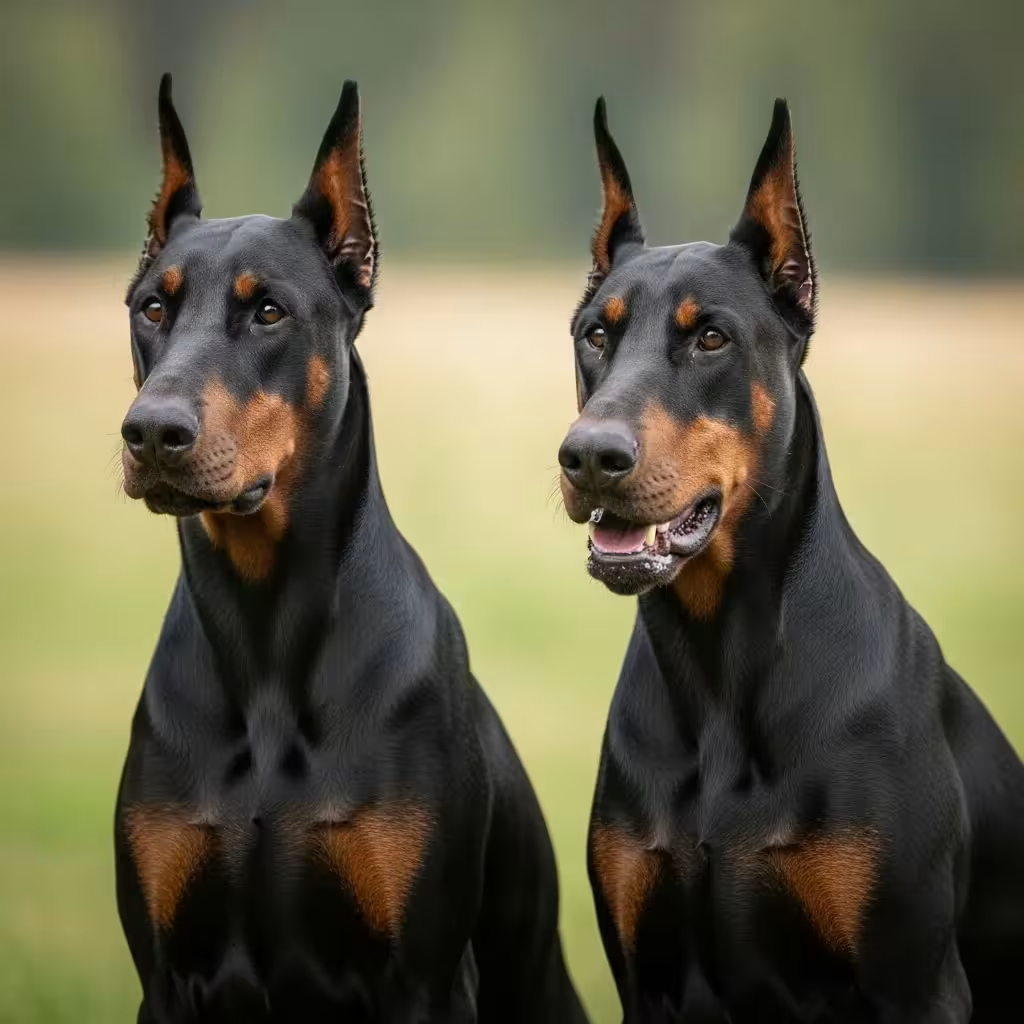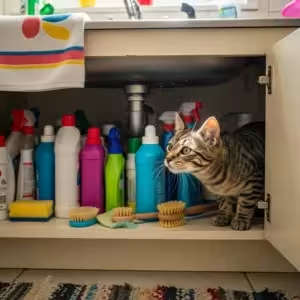
Breed #5: The Doberman Pinscher (from Health-Tested Lines)
The Doberman Pinscher is a breed whose inclusion on a “healthiest” list requires a very important caveat: responsible, extensive health testing is not optional, it is absolutely essential. Created in Germany as a personal protection dog, the modern Doberman is a noble, intelligent, and fiercely loyal companion. While the breed is plagued by serious genetic health issues, it is possible to significantly reduce risk by sourcing a puppy from a breeder who performs rigorous, ongoing screening.
Health Profile
When well-bred, the Doberman is an athletic and graceful dog. However, the breed faces significant health challenges that cannot be ignored.
Strengths: A structurally sound and athletic build designed for speed and agility.
MAJOR Potential Issues: The most significant concern is Dilated Cardiomyopathy (DCM), a deadly heart disease that is rampant in the breed. It can cause sudden death in seemingly healthy dogs. Reputable breeders must screen their dogs annually via Holter monitor (a 24-hour ECG) and echocardiogram. Other major issues include von Willebrand’s disease (a blood clotting disorder), Wobbler syndrome (a neurological disease affecting the neck), and hip dysplasia. Without proof of extensive, multi-generational health testing, a Doberman is a very high-risk choice.
Specific Care Needs for a Doberman Pinscher
Proactive Veterinary Care: This is the cornerstone of responsible Doberman ownership. Work with a veterinarian who is knowledgeable about the breed’s health risks. Annual cardiac screening, including a Holter and/or echocardiogram, is strongly recommended for all adult Dobermans, even if they appear healthy. Discussing genetic tests for DCM and other conditions with your vet is also a wise step.
Exercise: Dobermans are powerful, high-energy dogs that need 60-90 minutes of exercise daily. This should include opportunities to run in a securely fenced area as well as leashed walks or jogs. They are highly intelligent and also need mental challenges to prevent boredom.
Grooming: Their short, sleek coat requires minimal care. A quick weekly brushing is sufficient. They are sensitive to the cold due to their short coat and low body fat, so a winter coat is a must in colder climates.
Training & Socialization: Like the Malinois, early and comprehensive socialization is vital to developing a well-adjusted Doberman. They are incredibly smart and sensitive, responding best to positive, consistent training methods. Their loyalty and protective instincts must be channeled appropriately through training and management.















